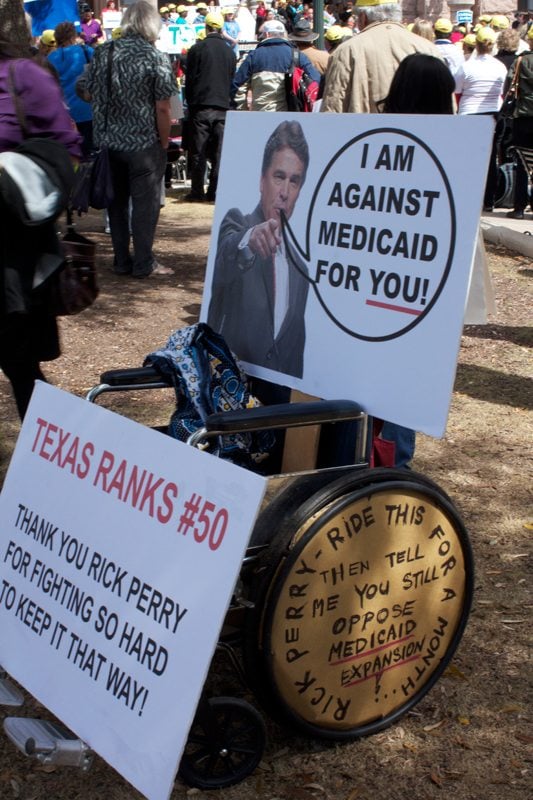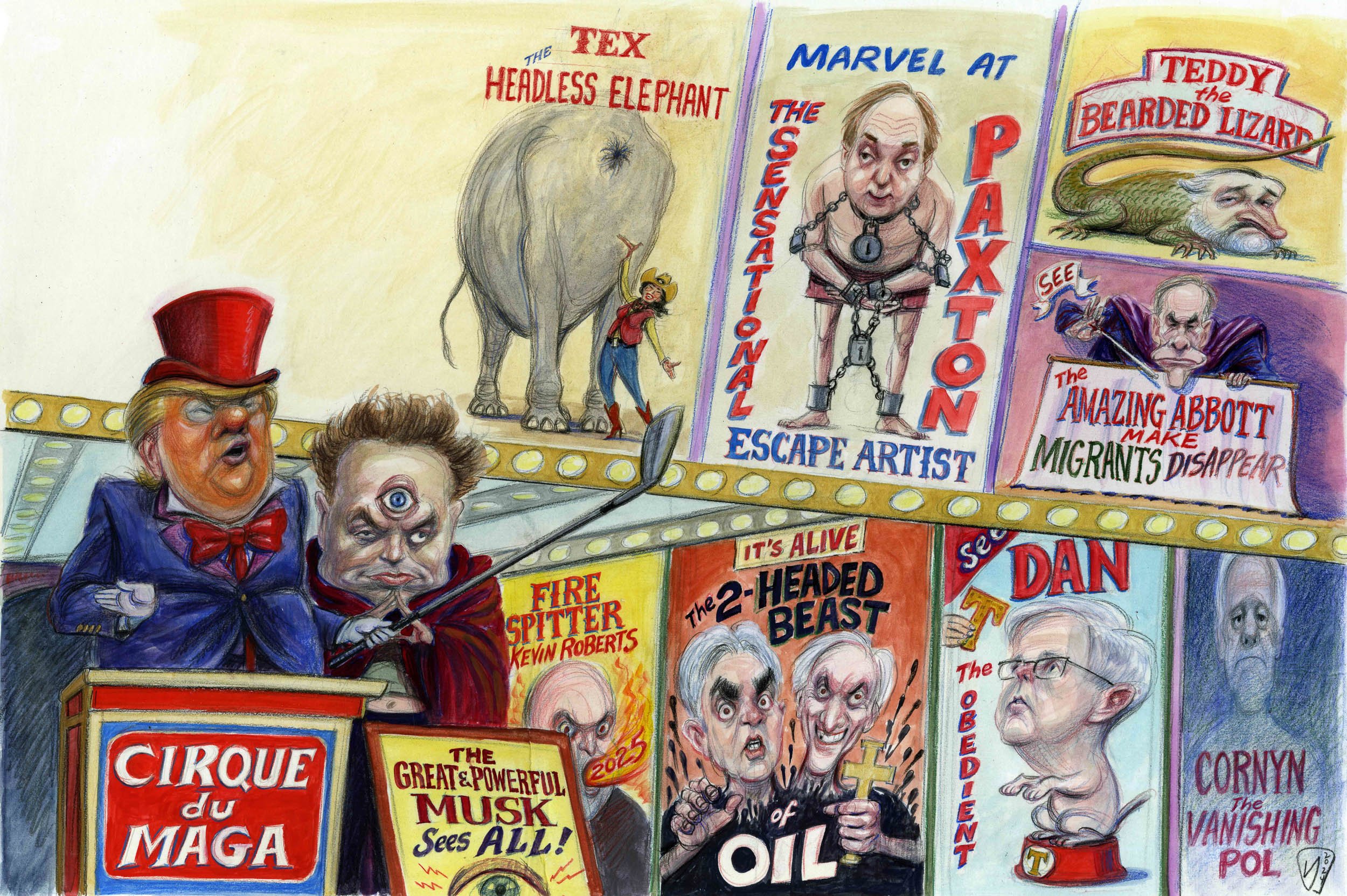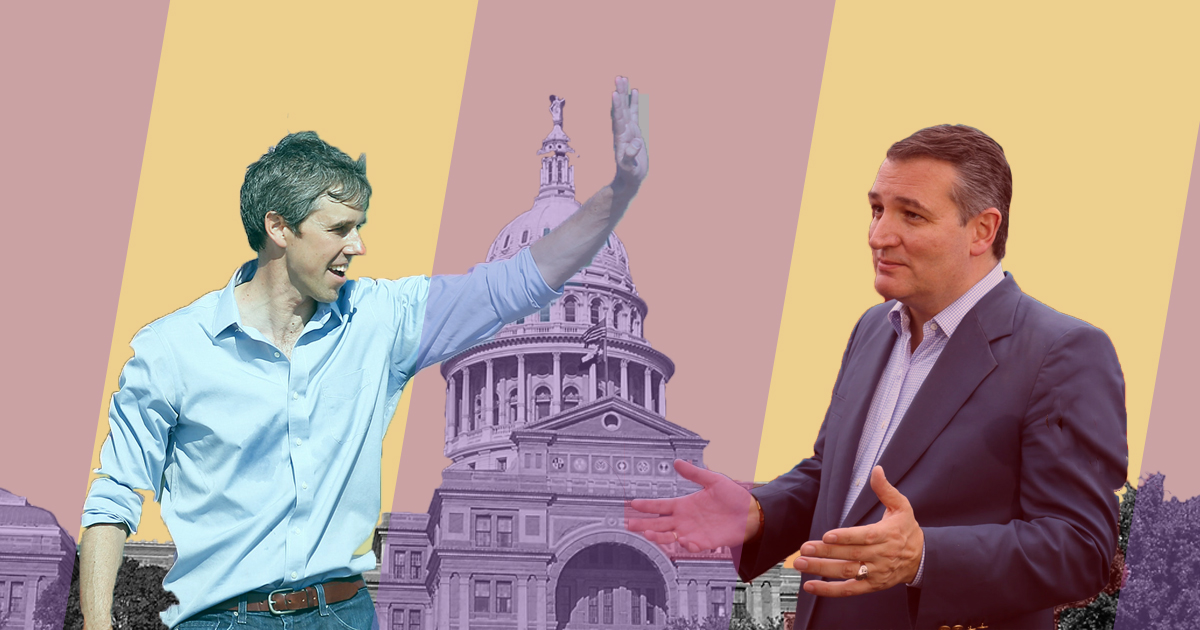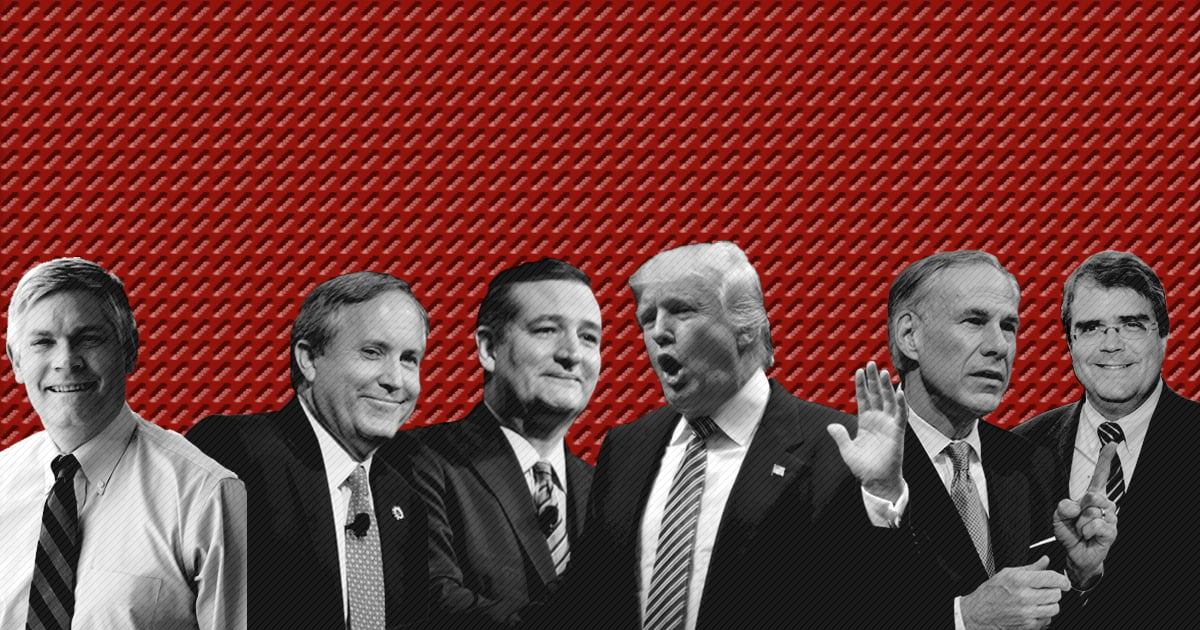
Texas Needs a Nonviolent Revolution at the Polls

A version of this story ran in the November 2015 issue.
Fellow Texans, we should be ashamed of our state. Governor Greg Abbott, Lieutenant Governor Dan Patrick and their governing majorities in the lobbyists’ house of dubious repute known as the Texas Legislature, together parroting former Governor Rick Perry’s “Texas Miracle,” have turned us into the most immoral state in the American federation.
The ethical quality of a society is fairly judged, as is often said, by how its poorest citizens fare.
What, then, is our gravest moral failing? Is it the Legislature’s repeated refusal, after losing six straight lawsuits, to pay for an adequate system of public education for our children? Is it our one-party phalanx’s grim refusal to raise the state minimum wage, so cruel to the working poor? Is it our highest officials’ xenophobic, racist splurging, as if drunkenly, on border fences, watchtowers, drones and National Guardsmen to net the brown-skinned persons from the south who want to do the jobs most of us look down on?
Not quite. The moral bottom is where health care is concerned.
In all but one of the advanced industrial nations — that is, our own — health care for all as a human right is firmly established. Health care is the best and surest test of the justice and fairness of a nation. Medicare for the older and Medicaid for the poor — the greatest achievement of Texan President Lyndon Johnson — and now Obamacare are the best we have been able to do. Obamacare closed the huge “Medicaid gap,” but many states, including Texas, when given a shrewd green light by the Supreme Court, have refused to participate in that beneficent closure.
In 2013, according to the Kaiser Family Foundation, 5.4 million Texans lacked any health insurance. By 2014, according to a survey by the U.S. Centers for Disease Control and Prevention, Texas had the highest number of uninsured people in the nation, as well as the highest percentage of uninsured, at one in four.
First Rick Perry, now Abbott, Patrick, et al., have refused to let more than 1 million men, women and children receive their share of a total of $100 billion, almost all of it from the federal government, for the care of their own diseases and injuries. The people have paid and will pay for this medical care with our taxes. The money, and the care it pays for, are ours by law. The state’s top leaders and the Legislature just refuse to accept it. Even the Texas Association of Business can hardly believe it.
Then this year, without a public hearing, the Legislature cut by $350 million Medicaid for physical and occupational therapists who, as Robert Garrett reported in the Dallas Morning News, work “with 445,000 poor Texans afflicted with, among other things, cerebral palsy, muscular dystrophy, autism, and Alzheimer’s disease.”
Think what this indescribably huge, circumambient ethical failure here means to a person living alone with a cancer, or to a family with a child with leukemia. That now is the ethical measure of our state and the Texas Republican Party.
Well, will you vote March 1? Will you get your friends to vote? Do you even know what number your precinct is?
The historically momentous primary elections in Texas are about four months away.
Two nonviolent revolutions are being declared, one from the far right by Ted Cruz, the other boldly liberal and left, including some democratic socialism on the Scandinavian model, by Bernie Sanders. In the first, establishment Republican Jeb Bush and the others are trying to somehow stop the phenomenal Donald Trump. In the second, leading establishment Democrat Hillary Clinton is rolling out some substantially progressive projects to try to sideswipe Sanders’ broad and daring demands for “a political revolution.”
Well, will you vote March 1? Will you get your friends to vote? Do you even know what number your precinct is? That’s where, shortly after the primary elections, those who take the minor trouble to attend will elect the Texas delegates for the various presidential candidates. In both primaries, Democratic and Republican, the delegate slots are assigned proportionally as the votes have been cast in the March 1 election. Cruz could go to his national convention with most of the Republican delegates from huge Texas. So could The Donald. So, with most of the Democratic delegates, could Sanders or Clinton.
What can one person do? Together with others, a great deal.


